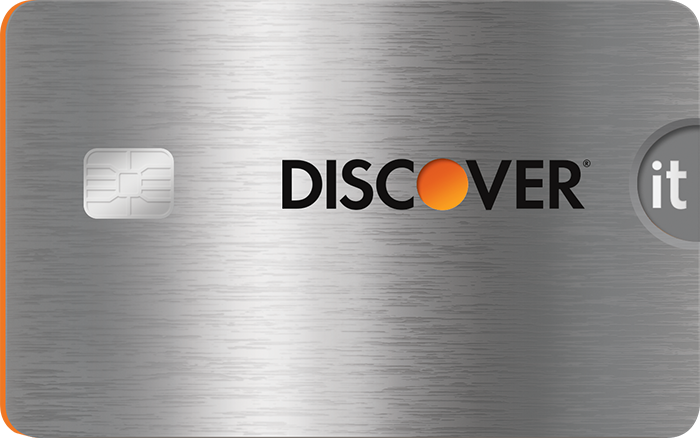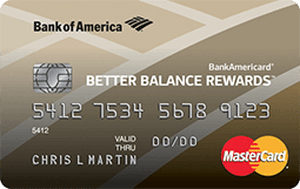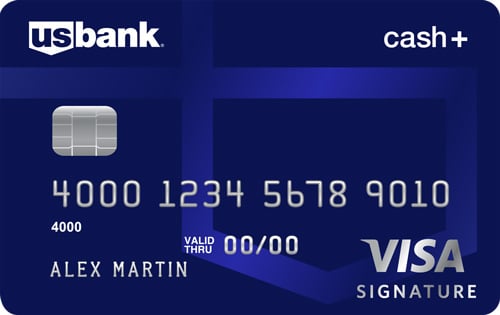- myFICO® Forums
- FICO Scoring and Other Credit Topics
- General Credit Topics
- Re: Credit card swipe fees and macroeconomic theor...
- Subscribe to RSS Feed
- Mark Topic as New
- Mark Topic as Read
- Float this Topic for Current User
- Bookmark
- Subscribe
- Mute
- Printer Friendly Page
Credit card swipe fees and macroeconomic theory.
Is your credit card giving you the perks you want?
Browse credit cards from a variety of issuers to see if there's a better card for you.
- Mark as New
- Bookmark
- Subscribe
- Mute
- Subscribe to RSS Feed
- Permalink
- Report Inappropriate Content
Credit card swipe fees and macroeconomic theory.
Hello after taking a semester of macroeconomics in college I came up with a theory that proposes swipe fees decrease the overall happiness and productivity of the economy. I just want to know what your input on my theory is so far.
GDP is groos domestic product which means how much economy makes
utils is a measurement of happiness
Let's say the swipe fee is 7% and the consumer gets 2% back then most consumers are satisfied that only the merchant loses out. But I had a theory that consumers still lose out despite supposedly gaining 2%. GDP can be measured not only by products sold but also by income. That means if the GDP for products sold decreases by 7% then income also decreases by 7% because if merchants make 7% less then they must pay their workers less. That means that despite consumers gaining back 2%, they're losing far more income. Of course economics has always been like physics because if matter doesn't get destroyed then value can't just disappear either. It must mean what other workers lose out on, the workers from credit card companies must gain. Credit card company worker income comes from those swipe fees and thus income lost from non-credit card company workers. Well if those credit card company workers gain what the other workers lost then what is the problem? Let's say a hypothetical economy on produced rhet which is useless and thus does not increase utils. Even if everyone is employed and working full time producing rhet and even if GDP is high, the population is not happy because it's buying rhet. The same concept can be applied to the tobacco industry because although it does increase GDP and jobs, it does not provide products that increases the overall satisfaction with life. In fact tobacco may take away workers who would be able to make products that would increase the satisfaction with life like vaccines and thus decrease non-tobacco industry GDP and decrease utils. Well this could apply to those credit card companies because having swipe fees doesn't increase the amount of GDP that would actually increase utils since swipe fees unlike vaccines aren't useful overall. In conclusion credit card swipe fees decrease the overall utils of the economy. I personally think swipe fees should be removed and credit card companies should be funded by tax and balance fees and annual fees. I want to know what you think.
Edit:I think I was a little unclear on this. I'm not advocating for removing credit cards but rather advocating for removing swipe fee profit. I fully understand credit cards are needed for establishing credibility and provide transaction efficiency.









 Starting Score: Ex08-732,Eq08-713,Tu08-717
Starting Score: Ex08-732,Eq08-713,Tu08-717Current Score:Ex08-795,Eq08-807,Tu08-787,EX98-761,Eq04-742
Goal Score: Ex98-760,Eq04-760
Take the myFICO Fitness Challenge
History of my credit
- Mark as New
- Bookmark
- Subscribe
- Mute
- Subscribe to RSS Feed
- Permalink
- Report Inappropriate Content
Re: Credit card swipe fees and macroeconomic theory.
Heh, not sure I'd try writing an essay on this one; TANSTAAFL applies.
I understand your premise but it's a far more complicated calculation; merchants can and do raise prices for using a credit card. Visa / MC / Discover / Amex / Diners just to name the major US players, have employees too which you do suggest but that's not a zero sum necessarily. Further, what's the cost in lost productivity for a society when people have to fumble around for change as there's be no transaction networks if there was no money in it in a market economy? A minute per transaction, multiplied by a dozen transactions a day, times 365 times roughly the size of the population in the US (OK small children and similar excluded)? That's what we'd go back to in a no credit card world, it kinda sucked and convenience doesn't mean free.
Even if regulated as a utility there'd still be a transactional cost, and that's a swipe fee or subsidized potentially by the government, which means our taxes as a consumer.
If you've taken economic theory classes before tabacco really isn't a great analogy because tabacco consumption has a social cost. Swipe fees are a private cost, to me the consumer or Mary the Merchant, and what another consumer does is irrelevant to me in economic terms.
I'm really confused at the Physics reference: sure, we have conservation of energy, but there's no so such animal as conservation of value in economic goods: those fluctuate wildly, and value isn't constant across consumers let alone markets or population groups when we're talking a single good. In the time domain it's obviously untrue, typewriters had non-zero value when I was a kid, with the adoption of personal computers and later smart phones I doubt anyone under the age of 30 even remembers a typewriter. Now in real economic terms, typewriters have no value, possibly anywhere on the planet. Probably if we dug deep enough we'd find them in landfills.
I'm probably leaving out a bunch of crap too, I got to the junior year in an Econ curriculum but didn't pursue it, interesting subject though.
Anyway real full monty economics is incredibly complex, which is why much of it gets reduced to two dimensional models; as humans we kinda suck at 10+ variable analysis ![]()





















- Mark as New
- Bookmark
- Subscribe
- Mute
- Subscribe to RSS Feed
- Permalink
- Report Inappropriate Content
Re: Credit card swipe fees and macroeconomic theory.
You are also forgetting the cost that is associated with handling a cash transaction - you have to use that as a comparison. In my business, a cash transaction probably costs me in the neighborhood of 6%, due to the fact that we do not take in much cash to start with, and also the time it takes to prepare a bank deposit, and go to the bank!
Total CL $398600, plus car and RV loan.
Ooh. Ooh. Getting closer to that $500K mark!
- Mark as New
- Bookmark
- Subscribe
- Mute
- Subscribe to RSS Feed
- Permalink
- Report Inappropriate Content
Re: Credit card swipe fees and macroeconomic theory.
@Revelate wrote:Heh, not sure I'd try writing an essay on this one; TANSTAAFL applies.
I understand your premise but it's a far more complicated calculation; merchants can and do raise prices for using a credit card. Visa / MC / Discover / Amex / Diners just to name the major US players, have employees too which you do suggest but that's not a zero sum necessarily. Further, what's the cost in lost productivity for a society when people have to fumble around for change as there's be no transaction networks if there was no money in it in a market economy? A minute per transaction, multiplied by a dozen transactions a day, times 365 times roughly the size of the population in the US (OK small children and similar excluded)? That's what we'd go back to in a no credit card world, it kinda sucked and convenience doesn't mean free.
Even if regulated as a utility there'd still be a transactional cost, and that's a swipe fee or subsidized potentially by the government, which means our taxes as a consumer.
If you've taken economic theory classes before tabacco really isn't a great analogy because tabacco consumption has a social cost. Swipe fees are a private cost, to me the consumer or Mary the Merchant, and what another consumer does is irrelevant to me in economic terms.
I'm really confused at the Physics reference: sure, we have conservation of energy, but there's no so such animal as conservation of value in economic goods: those fluctuate wildly, and value isn't constant across consumers let alone markets or population groups when we're talking a single good. In the time domain it's obviously untrue, typewriters had non-zero value when I was a kid, with the adoption of personal computers and later smart phones I doubt anyone under the age of 30 even remembers a typewriter. Now in real economic terms, typewriters have no value, possibly anywhere on the planet. Probably if we dug deep enough we'd find them in landfills.
I'm probably leaving out a bunch of crap too, I got to the junior year in an Econ curriculum but didn't pursue it, interesting subject though.
Anyway real full monty economics is incredibly complex, which is why much of it gets reduced to two dimensional models; as humans we kinda suck at 10+ variable analysis
Yeah we definitely need to keep credit cards for convenience and as a tool to measure credibility. It definitely is reasonable some money is subsidized since credit cards do cost money to operate but I just don't think profit should be made off swipe fees. Tobacco also being a social cost only strengthens my point that only useful products should be counted in GDP. While swipe fees do seem private on the individual level, they have a very large impact on everyone. If consumers kept using credit cards to buy what your company makes then your company is going to lose money and you're going to hurt. With the physics reference I'm saying money lost during transaction fees has some of it go to credit card compnaies but like you said it's not zero sum. In fact it's inefficient. Yeah producing typewriters today would be what I consider obsolete GDP because although they provide jobs, they don't improve the utils of the population. I'm sure there's definitely lots of variables we're leaving out but it's the best we can do. Thank you for your thoughtful response.









 Starting Score: Ex08-732,Eq08-713,Tu08-717
Starting Score: Ex08-732,Eq08-713,Tu08-717Current Score:Ex08-795,Eq08-807,Tu08-787,EX98-761,Eq04-742
Goal Score: Ex98-760,Eq04-760
Take the myFICO Fitness Challenge
History of my credit
- Mark as New
- Bookmark
- Subscribe
- Mute
- Subscribe to RSS Feed
- Permalink
- Report Inappropriate Content
Re: Credit card swipe fees and macroeconomic theory.
@fltireguy wrote:
Hang on a second. You can't base a theory off of a 7.5% swipe fee. Maybe a 1.8-2.2% fee, but there is a HUGE difference between reality, and the numbers in your theory
You are also forgetting the cost that is associated with handling a cash transaction - you have to use that as a comparison. In my business, a cash transaction probably costs me in the neighborhood of 6%, due to the fact that we do not take in much cash to start with, and also the time it takes to prepare a bank deposit, and go to the bank!
Can you explain the first sentence you had? Whether it's 7.5% of 2%, there's still economic loss in useful GDP. You should also see the edit I made on my first post and it's my bad for not explaining that clearly.









 Starting Score: Ex08-732,Eq08-713,Tu08-717
Starting Score: Ex08-732,Eq08-713,Tu08-717Current Score:Ex08-795,Eq08-807,Tu08-787,EX98-761,Eq04-742
Goal Score: Ex98-760,Eq04-760
Take the myFICO Fitness Challenge
History of my credit
- Mark as New
- Bookmark
- Subscribe
- Mute
- Subscribe to RSS Feed
- Permalink
- Report Inappropriate Content
Re: Credit card swipe fees and macroeconomic theory.
@Subexistence wrote:
@Revelate wrote:Heh, not sure I'd try writing an essay on this one; TANSTAAFL applies.
I understand your premise but it's a far more complicated calculation; merchants can and do raise prices for using a credit card. Visa / MC / Discover / Amex / Diners just to name the major US players, have employees too which you do suggest but that's not a zero sum necessarily. Further, what's the cost in lost productivity for a society when people have to fumble around for change as there's be no transaction networks if there was no money in it in a market economy? A minute per transaction, multiplied by a dozen transactions a day, times 365 times roughly the size of the population in the US (OK small children and similar excluded)? That's what we'd go back to in a no credit card world, it kinda sucked and convenience doesn't mean free.
Even if regulated as a utility there'd still be a transactional cost, and that's a swipe fee or subsidized potentially by the government, which means our taxes as a consumer.
If you've taken economic theory classes before tabacco really isn't a great analogy because tabacco consumption has a social cost. Swipe fees are a private cost, to me the consumer or Mary the Merchant, and what another consumer does is irrelevant to me in economic terms.
I'm really confused at the Physics reference: sure, we have conservation of energy, but there's no so such animal as conservation of value in economic goods: those fluctuate wildly, and value isn't constant across consumers let alone markets or population groups when we're talking a single good. In the time domain it's obviously untrue, typewriters had non-zero value when I was a kid, with the adoption of personal computers and later smart phones I doubt anyone under the age of 30 even remembers a typewriter. Now in real economic terms, typewriters have no value, possibly anywhere on the planet. Probably if we dug deep enough we'd find them in landfills.
I'm probably leaving out a bunch of crap too, I got to the junior year in an Econ curriculum but didn't pursue it, interesting subject though.
Anyway real full monty economics is incredibly complex, which is why much of it gets reduced to two dimensional models; as humans we kinda suck at 10+ variable analysis
Yeah we definitely need to keep credit cards for convenience and as a tool to measure credibility. It definitely is reasonable some money is subsidized since credit cards do cost money to operate but I just don't think profit should be made off swipe fees. Tobacco also being a social cost only strengthens my point that only useful products should be counted in GDP. While swipe fees do seem private on the individual level, they have a very large impact on everyone. If consumers kept using credit cards to buy what your company makes then your company is going to lose money and you're going to hurt. With the physics reference I'm saying money lost during transaction fees has some of it go to credit card compnaies but like you said it's not zero sum. In fact it's inefficient. Yeah producing typewriters today would be what I consider obsolete GDP because although they provide jobs, they don't improve the utils of the population. I'm sure there's definitely lots of variables we're leaving out but it's the best we can do. Thank you for your thoughtful response.
Clearly some people consider tobacco useful (even if I am not one of them). You do need to seperate your personal judgements out of analysis of consumers as a whole.
My point is there's a difference between goods which soley have a private cost, and ones that have a private and social cost. If Suzie Chain-Smoker is around me smoking, it lowers my quality of life and in theory other people's around me too... that's a negative social cost borne by everyone else. If someone else uses a credit card and pays a swipe fee, that doesn't effect me at all; as a matter of fact it arguably has a positive social benefit since there's less time taken at the checkout if we look at it that way (which is hard), but it's easier as fttireguy suggests to measure the cost of cash transactions to a retailer too.
If you're going to pick an economic comparison it needs to be an accurate one, rather than what I assume is selecting a negative one to try to paint what you're arguing against in a poorer light. That's a salesman tactic and not an appropriate one for this sort of debate. Ask one of your economics professors.





















- Mark as New
- Bookmark
- Subscribe
- Mute
- Subscribe to RSS Feed
- Permalink
- Report Inappropriate Content
Re: Credit card swipe fees and macroeconomic theory.
@Revelate wrote:
@Subexistence wrote:
@Revelate wrote:Heh, not sure I'd try writing an essay on this one; TANSTAAFL applies.
I understand your premise but it's a far more complicated calculation; merchants can and do raise prices for using a credit card. Visa / MC / Discover / Amex / Diners just to name the major US players, have employees too which you do suggest but that's not a zero sum necessarily. Further, what's the cost in lost productivity for a society when people have to fumble around for change as there's be no transaction networks if there was no money in it in a market economy? A minute per transaction, multiplied by a dozen transactions a day, times 365 times roughly the size of the population in the US (OK small children and similar excluded)? That's what we'd go back to in a no credit card world, it kinda sucked and convenience doesn't mean free.
Even if regulated as a utility there'd still be a transactional cost, and that's a swipe fee or subsidized potentially by the government, which means our taxes as a consumer.
If you've taken economic theory classes before tabacco really isn't a great analogy because tabacco consumption has a social cost. Swipe fees are a private cost, to me the consumer or Mary the Merchant, and what another consumer does is irrelevant to me in economic terms.
I'm really confused at the Physics reference: sure, we have conservation of energy, but there's no so such animal as conservation of value in economic goods: those fluctuate wildly, and value isn't constant across consumers let alone markets or population groups when we're talking a single good. In the time domain it's obviously untrue, typewriters had non-zero value when I was a kid, with the adoption of personal computers and later smart phones I doubt anyone under the age of 30 even remembers a typewriter. Now in real economic terms, typewriters have no value, possibly anywhere on the planet. Probably if we dug deep enough we'd find them in landfills.
I'm probably leaving out a bunch of crap too, I got to the junior year in an Econ curriculum but didn't pursue it, interesting subject though.
Anyway real full monty economics is incredibly complex, which is why much of it gets reduced to two dimensional models; as humans we kinda suck at 10+ variable analysis
Yeah we definitely need to keep credit cards for convenience and as a tool to measure credibility. It definitely is reasonable some money is subsidized since credit cards do cost money to operate but I just don't think profit should be made off swipe fees. Tobacco also being a social cost only strengthens my point that only useful products should be counted in GDP. While swipe fees do seem private on the individual level, they have a very large impact on everyone. If consumers kept using credit cards to buy what your company makes then your company is going to lose money and you're going to hurt. With the physics reference I'm saying money lost during transaction fees has some of it go to credit card compnaies but like you said it's not zero sum. In fact it's inefficient. Yeah producing typewriters today would be what I consider obsolete GDP because although they provide jobs, they don't improve the utils of the population. I'm sure there's definitely lots of variables we're leaving out but it's the best we can do. Thank you for your thoughtful response.
Clearly some people consider tobacco useful (even if I am not one of them). You do need to seperate your personal judgements out of analysis of consumers as a whole.
My point is there's a difference between goods which soley have a private cost, and ones that have a private and social cost. If Suzie Chain-Smoker is around me smoking, it lowers my quality of life and in theory other people's around me too... that's a negative social cost borne by everyone else. If someone else uses a credit card and pays a swipe fee, that doesn't effect me at all; as a matter of fact it arguably has a positive social benefit since there's less time taken at the checkout if we look at it that way (which is hard), but it's easier as fttireguy suggests to measure the cost of cash transactions to a retailer too.
If you're going to pick an economic comparison it needs to be an accurate one, rather than what I assume is selecting a negative one to try to paint what you're arguing against in a poorer light. That's a salesman tactic and not an appropriate one for this sort of debate. Ask one of your economics professors.
I'm saying tobacco is bad for the smokers themselves in general and even without social costs, it's a bad product just like the rhet I mentioned above. Therefore tobacco has a private cost. To be honest it's probably worse for the smokers themselves than those around thems so it's not at all like smokers benefit from the tobacco being in the environment. Let's say we had an economy that only produces tobacco that has no effect on other people, everyone despite being employed would be unhappy cause no one wants to smoke themselves to death. I guess since we can't reach an agreement on whether tobacco can be considered bad for the individual we will move away from it. Since you find using tobacco as an example to be unethical then just follow what I said about the hypothetical rhet. The rhet has a private cost and it's prescense still poses a problem. Therefore things with private costs can still pose problems to a society.
Also did you see my edit in my first post. I'm saying we should keep credit cards active so they can reduce transaction costs but just take out the profit of swipe fees.









 Starting Score: Ex08-732,Eq08-713,Tu08-717
Starting Score: Ex08-732,Eq08-713,Tu08-717Current Score:Ex08-795,Eq08-807,Tu08-787,EX98-761,Eq04-742
Goal Score: Ex98-760,Eq04-760
Take the myFICO Fitness Challenge
History of my credit